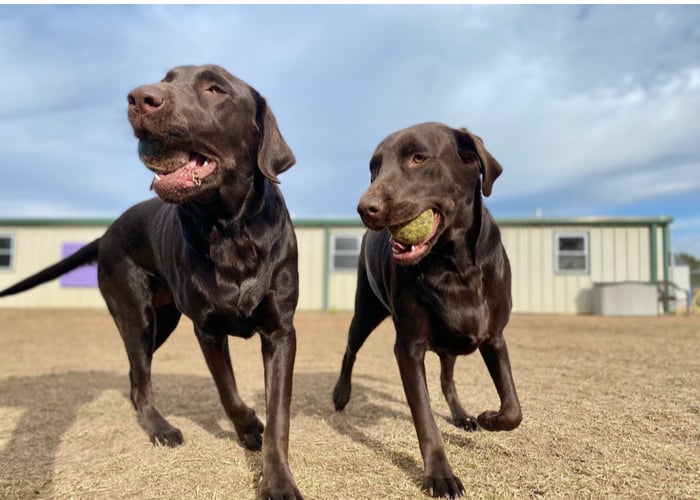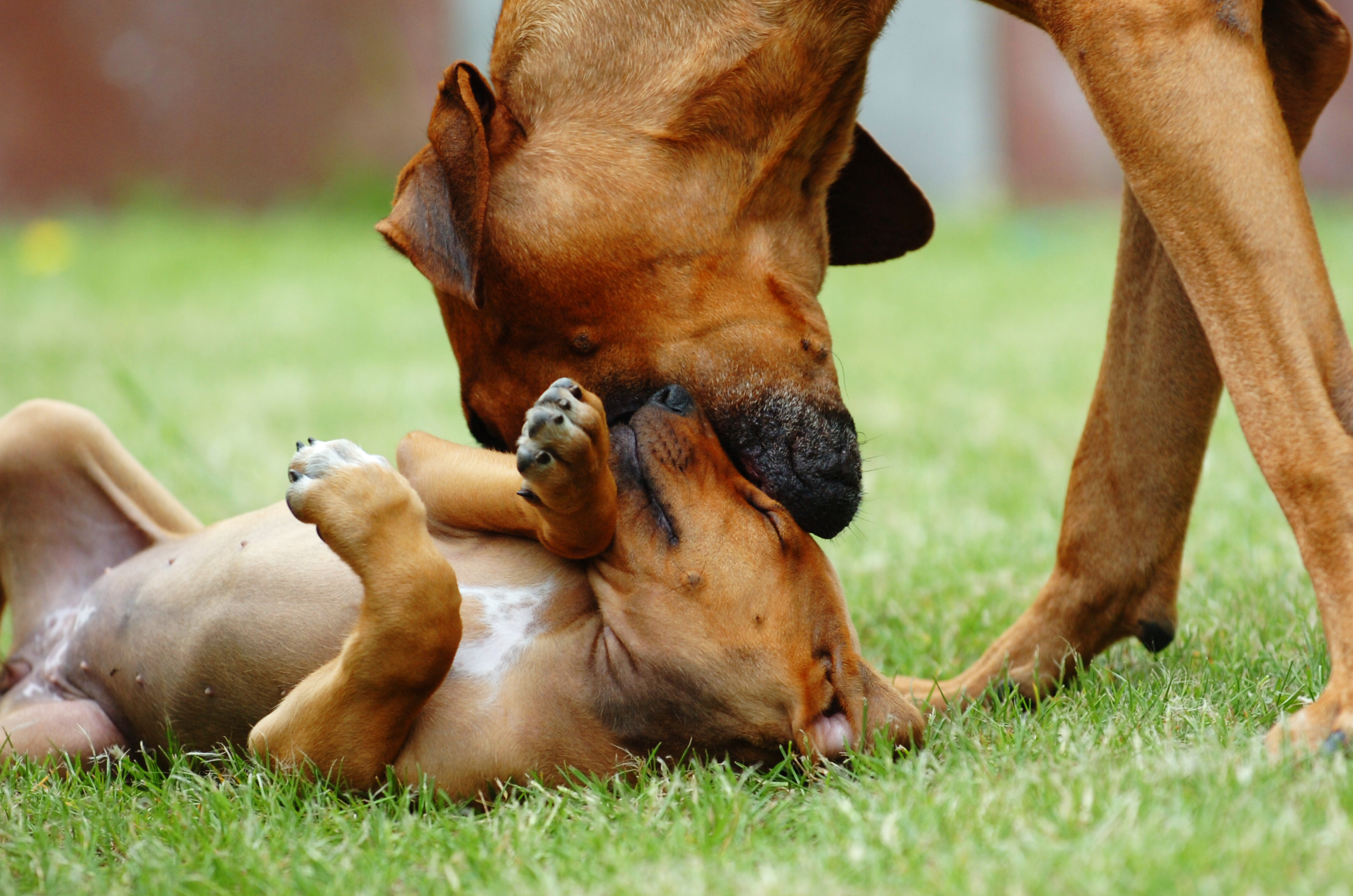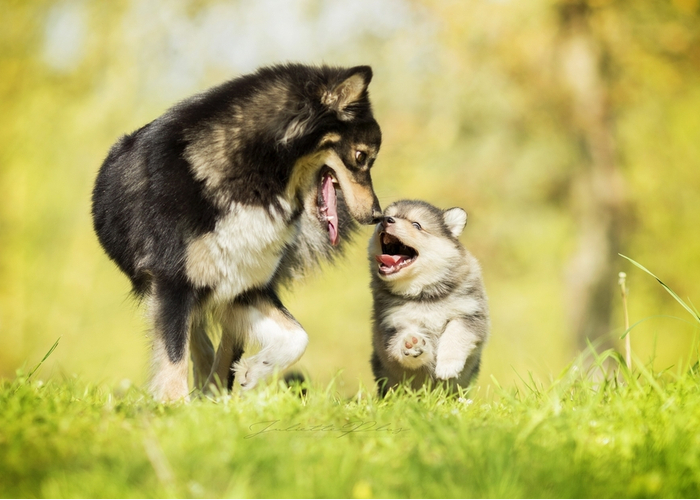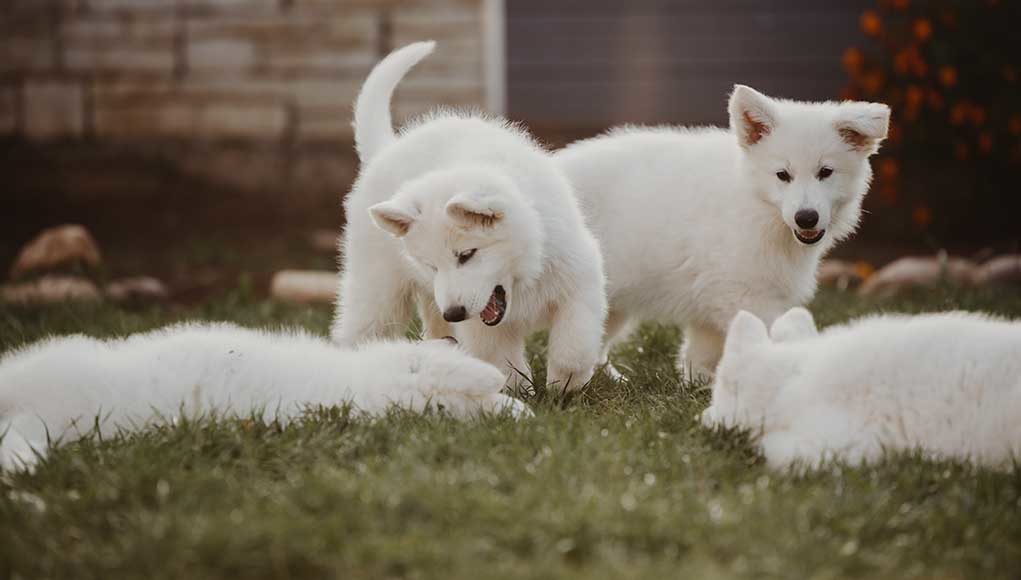Table of Contents
- Dogs Recognize Relatives Early On
- Dogs Recognizing Siblings Anecdotal Evidence Suggests Probable Connection
- Previous Studies on Dogs' Attachment to Relatives
- How to Tell If a Dog Recognizes Their Offspring Later in Life
- Dogs Recognizing Offspring After a Few Months
- Dogs Recognize Their Relatives Outside Factors Influencing Attachment
- Male Dog Memory and Attachment to Offspring
- Influence of Personality on Puppy and Father
- Can Puppies Remember Their Parents?
- Understanding Adult Dogs Recognize Their Relatives
- Can Dog Siblings Mate?
- So, Do Dogs Recognize Their Relatives?
All dogs will interpret the world around them through a sense of smell that can be anywhere from 10,000 to 100,000 times more sensitive than the human nose. But is it true that dogs can recognize their relatives?
As most pet owners will tell you, dogs can recognize humans and owners and will often behave differently around strangers or unfamiliar people.
When looking at canine siblings, the ability to recognize one another will significantly rely on how much time was spent together before separation.
Studies show that many dogs can recognize each other's scent, although it might be slightly different from what humans identify as a family member.
In other words, it's not the same as conscious or intentional recognition of shared lineage but does serve as a form of attachment or memory.

Dogs Recognize Relatives Early On
Current research suggests that dogs can recognize siblings and parents under specific conditions later in life.
If a pup spends the first 16 weeks together, they're more inclined to identify those “pack members” later in life. Unfortunately, dogs often spend less time together as families when they're in the puppy phase, making them less likely to remember family members later.
Unfortunately, this is all theorizing, with minimal evidence to support these findings either way.
While the answer isn't precisely clear-cut, there are several theories on a dog's ability to recognize siblings.
Dogs are likely not able to distinguish between a sibling and another pup that isn't genetically related to them.
This means a dog won't rationalize another animal as family, nor will they treat a littermate differently from another dog.
Scents and smells can sit within memory for a long time, making it technically possible for
canine siblings later in life, especially within the first few months (or years, for some breeds).
A sibling will often hold a familiar smell that likely stems from core memory.
While they may not remember the other pup as their brother or sister, they may remember the smell and feel comfortable with them.
Dogs Recognizing Siblings Anecdotal Evidence Suggests Probable Connection
While studies can connect a puppy with its mother later in life, research isn't conclusive on sibling connections.
Many suggest that littermates recognize past littermates instantly. Others suggest siblings hold minimal attachment to family ties. Some owners indicate an extreme level of delight by littermates who haven't seen each other for extended periods.
Friendly and exuberant play among siblings suggests recognition overall, particularly those reunited within the year.
Further research suggests dogs may interact as if they were meeting new dogs in general.
Humans attach profound importance to a family connection, pushing the narrative that dogs should also recognize and love each other.
Anyone catching a “reunion” between pups on camera stacks up thousands of views, heartfelt comments, and viral potential.
But, determining whether they genuinely recognize one another is up for debate.
Previous Studies on Dogs' Attachment to Relatives
A substantial study by The University of Belfast looked through multiple dog litters and their attachment or recognition of biological connections.
The project reviews groups of dogs, starting from a few weeks of age. Researchers investigated whether a puppy could identify their birth mother over a dog of the same age and breed in the same enclosure.
Results show that 84% of the puppies preferred their biological mom over the other dog.
The study similarly compared sibling connections, revealing that 67 percent of canines prefer their biological littermates over unknown pups.
The research suggested that results were strongly associated with scent, comparing the actual animal with a placebo marked with scent.
Results were nearly identical to the first test. Pup chose their mom's cloth 82 percent of the time and the siblings' cloth 70 percent.
After completing the initial study, researchers continued to evaluate canine attachment at an older age.
Researchers connected with a group of dogs approximately two years old, where access to original littermates was encouraged after extended periods.
The dogs were separated from their mom and siblings from eight weeks of age, with no prior connection before the study.
A cloth with the scent of the original puppy was placed in front of the mother, along with fabrics from other 2-year-old pups unrelated biologically.
Approximately 78% of the time, mothers sniffed their offspring's cloth the longest and most intently.

How to Tell If a Dog Recognizes Their Offspring Later in Life
Female dogs often hold a strong maternal instinct toward their puppies. Many believe a female dog will never forget their offspring, similar to humans connecting with our young.
Although female dogs will remember and recognize their pups after a few days without contact, this protective instinct is directly associated with the vulnerability of the puppy.
The more defenseless and fragile the puppy is, the stronger that protective instinct will be from the mother.
This instinct drives the female dog to search for puppies removed at a young age, making early attachment critical to the physical and mental wellbeing of all pups.
If the pups are eating solid foods and able to walk independently, the maternal bond will still hold firm.
During this phase, the mother will notice the loss of a puppy. Returning the puppy after a few days will instantly activate the pup's memory, creating excitement or protective nature.
These actions may include moving the baby with her mouth, excessive sniffing, or compulsively cleaning the puppy.
Dogs Recognizing Offspring After a Few Months
The maternal instinct still holds strong after several months of being apart. The dog's maternal instinct will keep for several months after the pups have left, developing a bond with the puppies and all care provided.
Space and time apart from each other don't remove these memories from the mother. A natural bond develops with hormonal and instinctual influence.
It starts with the mother and pup spending extensive amounts of time together as the dog grows. The more time a mother spends with offspring, the higher the chance of remembering long-term.
Dogs Recognize Their Relatives Outside Factors Influencing Attachment
Attachment stems from hormonal influence but also holds within personality and characteristics. Those dogs with social personalities will often form more permanent attachments toward puppies.
These attachments increase the probability she'll remember her pups long after they leave.
Those dogs that prefer human attachment or solitude are less likely to retain their offspring after years of separation.

Male Dog Memory and Attachment to Offspring
Male dogs will hold hormonal influences like female dogs. They do not recognize any offspring as their own.
They don't connect themselves to a litter in a way human fathers would bond with their children.
That's not to say that male dogs won't remember a litter of puppies after connecting with them, but the reaction changes dramatically based on typical behavior.
A parental instinct of a father dog will influence the ability to recognize puppies as a group from his household.
Social dogs will likely view a litter of puppies as new family members but will not see them as an attachment or relative.
There is no guarantee that a father will display recognizable behavior to show he remembers the puppies.
The hormonal influences a father receives are minimal compared to the female. As the puppies age, the father will unlikely recognize puppies after many years.
Instead, a father may form an attachment to specific puppies if they remain in the home for extended periods.
The longer the pup remains in the house, the more likely the father will accept the new dog as a friend or family member.
Influence of Personality on Puppy and Father
The more affectionate and loving a dog is, the more likely the two will hold a strong bond overall.
A father may remember puppies that keep a positive impact and connection. Relationships that stem from play and interaction are more likely to develop a connection overall.
Can Puppies Remember Their Parents?
When puppies are born, they can instinctually recognize their mother, starting with the distinct smell.
Pups will rely exclusively on the birth mother during the first few months after birth, as they are vulnerable to the outside world.
This reliance on the mother continues until they can safely move away from the mother.
The pups will cry and move around should the mother leave the bed (even temporarily), as their comfort is gone, and the puppies are aware of the lack of presence. This reaction demonstrates memory and awareness.
As the pups continue to grow, they eventually build independence around seven or eight weeks of age. At this time, dogs develop independence and interaction with other household members.
Color, fur, and scent are all identifying factors helping the puppy memorize the mother. The most significant influence is still scent, used as the essential identification.
As puppies become more exploratory, they begin learning about the world around them. By a few weeks old, dogs become more experimental.
Personality and behavior rapidly develop as pups become more adventurous. Becoming mischief-makers, puppies quickly push limits but remain close to their mother.
After a few months of separation, a puppy will remember their mother, even without meeting. When reintroducing the mother and puppy, both parties will recognize the scent immediately.
That doesn't mean reconnection is without issue—as many puppies are considerably larger, with more energy and play. Should a pup begin chewing and jumping at the mother, reconnecting becomes turbulent?
The mother may show less affection and interaction because of the puppy's energy.
Different personalities will behave differently, with some immediately reconnecting with maternal dogs and others becoming nervous and hesitant.
Both reactions are expected, with environment and situation playing critical factors in reunification.
Understanding Adult Dogs Recognize Their Relatives
A study in 2009 reviewed the ability of domestic dogs to recognize human and canine family members.
The results showed facial and olfactory memory exists years after separation. This reaction suggests a pup might recognize previous maternal bonds and prior human connections.
Can Dog Siblings Mate?
One of the most prominent reasons people want to keep genetic attachment in mind is choosing an appropriate breeding partner.
Many individuals are concerned about inbreeding, especially when dogs don't distinguish family or biological connections.
While inbreeding is never outwardly encouraged due to the risk of genetic abnormalities, it may naturally occur when a dog is in heat and the only option is a family member.
It doesn't suggest the dog doesn't recognize kin; there isn't the same level of taboo within the animal kingdom.
While the University of Belfast study is only one approach to a dog's kin recognition, it highlights the potential capacity to recognize birth families.
With scent being the most substantial influence on these suggested indications, it's only through interpretation that we build our assumption.
Many dogs show friendly and positive behaviors that suggest familiarity, although these family ties need to form from a young age until 16 weeks of age.
Should a puppy separate from siblings or the mother before this time, scent familiarity will weaken.
So, Do Dogs Recognize Their Relatives?
Research does suggest that dogs can both remember and recognize siblings when they meet, predominately based on scent memory (instead of physical recognition).
Knowing how long a dog might remember a sibling is open for debate, but it's improbable that a dog will remember their sibling without a scent or visual aid.
While it's unclear how long a dog stores the smell of a mother or sibling in the memory bank, it affects the ability to recognize the scent overall.
Dogs are more interested in each other than ‘unknown' dogs, repeatedly sniffing, issuing invitations to play, expressing submissive behavior, and outward socializing.
A dog that recognizes a sibling will instantly relax if they determine they're a member of the same litter or pack.
The quick friend or foe assessment establishes a response, with close relatives perceived as non-threatening.
The overall connection with other siblings should continue if owners encourage frequent interaction, especially if it starts at a young age. If anything, having positive social interactions for the pup is always a good idea, regardless of recognizing the playmate as a family member.













